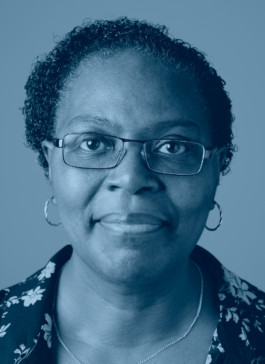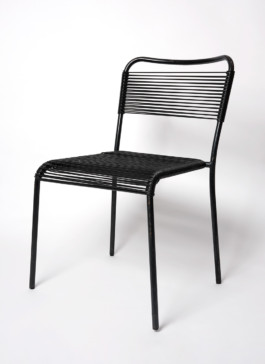Bev: “This woman nearly fell in the pond to avoid walking past us”


listen:
Content warning: contains descriptions of racial profiling and racism
Photography: Lottie Davies
Audio Producer: Deborah Shorindé
read:
My name is Bev Baker. I’m a nurse.
I’ve been a nurse for 37 years, working in the NHS. I’ve started as a 19 year old and I’ve worked my way up to being in a position of a Matron. It’s what I do. And I enjoy it.
At the beginning of March, holidays were being cancelled. People were talking about isolation, wearing masks. You kind of knew it was happening, but you were removed from it, because it didn’t affect you in that way. However, just little by little, the gravity of the pandemic became such a massive, stark reality.
The week before I became really ill, I remember the nurses calling in and calling in sick and ‘Oh you know, I’ve got a temperature, bit feverish’. It was strange. And I’d worked on the ward a few times, a lot more than I would normally, because as a Matron, it’s about supporting the area’s Clinical Standards, etc. It’s not about working clinically every shift. So I did notice I was doing more clinical shifts than I needed to. I said, I’d come in help. So I was on the ward helping out. And I just felt this tickling my throat and I said, ‘My throat’s scratching.’
That was the way I described it. I said, ‘I’ve got a tickle in my throat’, and it’s just like, ‘I hope I haven’t caught anything.’ So I went home, really exhausted, a mixture of emotions, actually feeling for the staff as well. Just thinking, oh, god, what is what have they got to face? Not to the gravity that… that it turned into. And on the Saturday I was feeling really kind of under the weather. So I didn’t do much. I didn’t even go out shopping.
In the space of three days I just felt really ill. It just got worse and worse and worse. And in the end, I say to my husband, ‘You need to go and sleep in another room because I don’t feel that you’re safe. I just feel that I’ve got a cough and that I don’t want to frighten the kids and say it’s Covid’.
In my mind, I knew exactly what it was.
And I had every symptom going: I had no taste; I had no smell; I was coughing until my ribs ached. I coughed so much I just felt like my lungs were gonna collapse. I couldn’t go up and down the stairs without gasping for my breath. I didn’t go outside at all for nearly 12 weeks.
You’d turn the TV on. And you’d see people that you knew, that had died.
And these people, they were younger than me.
People who I’d worked with. I’d got messages that one of the nicest guys – 50 years old with a young family – was on duty, didn’t feel well, ended up in intensive care, begged the staff not to intubate him. He said ‘I’m never gonna see my family. Please, please don’t intubate me. Please don’t take me to ITU’. They had to sedate him and take him. And those words, ‘I’ll never see my family again’ – it became the truest words he ever said, because he died.
I just thought, wow, how come I haven’t, if anybody should have died, it should have been me because I wasn’t… I’m not a fit person, you know. I’d exposed myself.
I think the message that was coming out about Asian and Black staff – you know, the minority staff being more susceptible to Covid – I feel was telling the other half of the population to be careful from us. So they were. It was a very subjective message. People took it for whatever they felt it meant. I could feel it. When I was in the supermarket. I noticed the way my change was given to me or, the way the queue spread a bit more. You know, when I had the energy to go for a walk, me and my husband and a friend were walking, and it was so obvious… so obvious. When this woman nearly fell in the pond to avoid walking past us. She literally stopped dead in her tracks. And looked like she was shaking. I just couldn’t believe it. That was just another straw on our backs, to make it even worse.
You feel so guilty that you’ve got your colleagues out there, putting their life on the line, day in, day out, not having a day off. I dunno… I just felt like a fraud. I felt like, I’m a nurse but I’m not a nurse because… what have I done? I’ve done as best as I could at the time, but during the real hot spot, I felt like I’d let people down.
I was just exhausted from the whole thing. I just stayed in my room and isolated myself from my family.
All the activities that were going on in the garden, I’d watch from the bedroom window.
My husband, who’d be out there, cutting the lawn; my son would be out there doing the hated job, weeding; my daughter to be out there, sunning herself.
I was watching them with a joy in my heart that they were fine. I knew that nothing could infect that garden. There was, I just felt there was no virus out there. Everything out there, for me was like my haven and safety net. And when I looked outside, I just felt this really kind of overwhelming feeling of isolation. But there’s an eerie feeling of… this kind of peace.
And then, little by little we’d eat in the garden. We’d put a table out. We’d have our meals out there because the weather was glorious. When I looked out there, I could hardly see a cloud sometimes. And it was a different kind of blue. It wasn’t a polluted blue. It was a pure blue.
And I could sit in my garden, and I could look up at the sky.
I could see out there and nobody could touch me.
An Empathy Museum project made with the support of NHS England and NHS Improvement, The Health Foundation, and Arts Council England